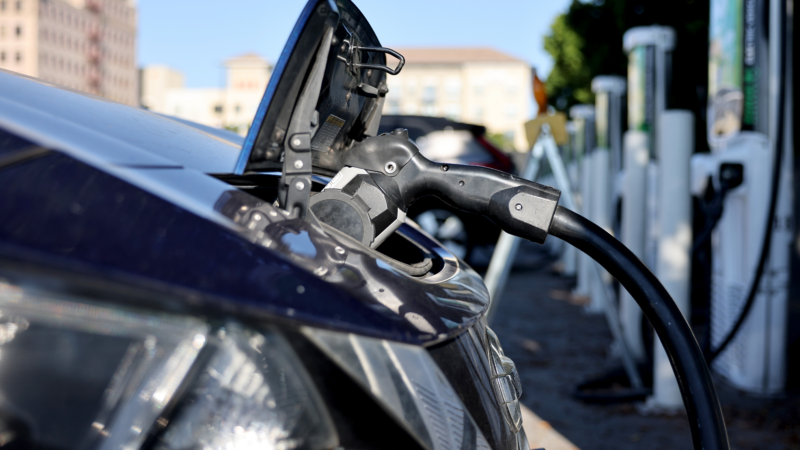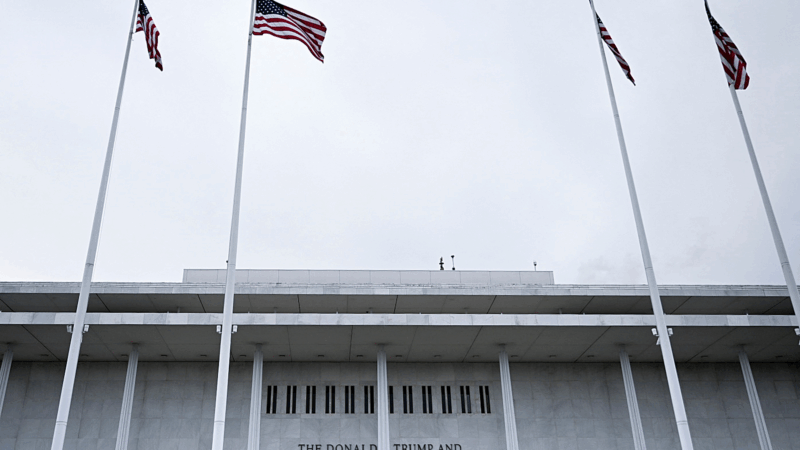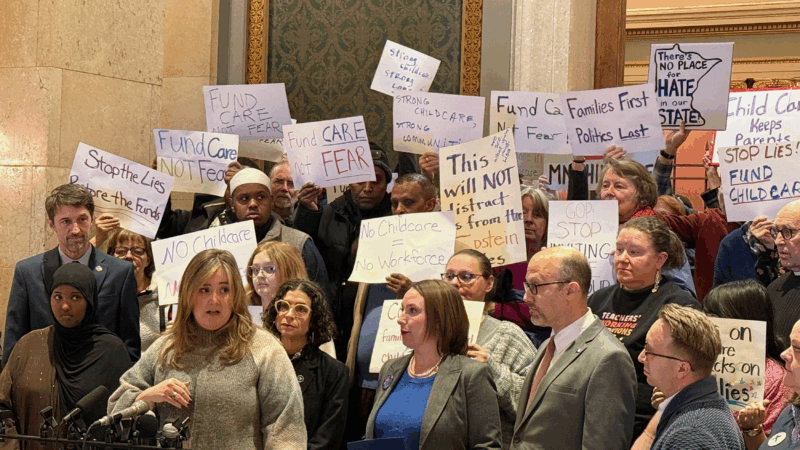Trump administration slams brakes on government’s adoption of electric vehicles
The Trump administration has halted much of the federal government’s adoption of electric vehicles into its massive fleet of cars and trucks.
The U.S. General Services Administration, which orders many of the vehicles and owns EV chargers used by other federal agencies, has “temporarily suspended” orders of zero-emission vehicles, stopped the installation of new EV charging stations, and ordered some existing stations to be shut down, according to internal memos obtained by NPR and Colorado Public Radio.
“All existing charging stations that are deemed not to be mission-critical should be disconnected from the network and turned off,” reads a March 3 memo on EV chargers signed by Michael Peters, the new commissioner of the GSA’s Public Buildings Service, appointed by President Trump.
The new mandates represent a stark reversal from the Biden administration, which directed the federal government to start transitioning the federal fleet to zero-emission vehicles as part of its efforts to combat climate change and support the EV industry.
While research is mixed on whether a transition to EVs would save the government money, environmental advocates say their climate benefits are clear.
“I think it’s a very shortsighted move,” Travis Madsen, transportation program director at the Southwest Energy Efficiency Project, said of the apparent move away from EVs.
The March 3 memo halts the installation of new GSA chargers, though it does allow agencies to ask for an exception if they have a “mission-critical need.” Agencies must follow a similar procedure if they want to continue using existing GSA-owned chargers. The memo does not define “mission critical.”
It’s unclear exactly how many chargers and how many federal facilities the new policy will affect. The GSA has already ordered chargers to be shut down at a large federal campus in Denver, according to an internal email obtained by Colorado Public Radio.

The pause on orders for new zero-emission vehicles was included in a January memo from Acting Administrator Stephen Ehikian, which suspended “any new GSA-funded obligations” for review. The memo listed several exceptions, including “vehicles for the federal fleet, other than zero emission vehicles.”
In an emailed statement, GSA spokesperson Jorge Pineda confirmed the pause on ordering new EVs. He said the GSA is working with its partner agencies to confirm that current and planned EV chargers are “mission critical in nature.”
Trump has long criticized electric vehicles, saying they are expensive and have limited range. During his 2024 campaign, he pledged to roll back Biden-era policies promoting EVs.
On his first day in office, Trump signed an executive order revoking a goal set by former President Biden for battery-powered vehicles to make up 50% of all new vehicles sold in the U.S. by 2030, which Trump has incorrectly called a mandate.
“Importantly, we ended the last administration’s insane electric vehicle mandate, saving our auto workers and companies from economic destruction,” Trump said during his recent address to Congress.

Trump has also paused billions in federal spending to build more public EV charging stations and is seeking to unwind other policies that promote EVs, including California’s ban on the sale of new gas-powered cars by 2035. Federal tax credits are still in place to incentivize consumers to buy EVs, though some Republicans in Congress have proposed killing those and imposing a new $1,000 EV tax instead.
Trump has made some exceptions. He has promoted EVs made by Tesla, whose CEO, Elon Musk, was a major campaign donor and is now a White House advisor leading efforts to cut the federal government. Last month, the State Department paused apparent plans for a $400 million contract for armored Tesla vehicles.
Trump targets green fleet plans
The federal government added thousands of electric vehicles to its fleet under Biden, who issued an executive order in 2021 requiring that most federal vehicle leases or purchases be zero-emission by 2035. All acquisitions of light-duty vehicles, which include passenger cars, SUVs and pick-up trucks, were to be zero-emission by 2027. Those targets have also been revoked by Trump.
Transportation is the largest source of planet-warming greenhouse gas emissions in the U.S., according to the Environmental Protection Agency. Cars, SUVs and other light-duty vehicles account for 57% of transportation-related emissions, and the federal government’s huge fleet has some 670,000 vehicles. The GSA provides more than 230,000 of those vehicles.
There were more than 8,500 electric vehicles in the federal fleet as of 2023, according to federal data. That number is likely larger now: In 2024, the GSA said the federal government had begun installing more than 25,000 charging ports and had ordered more than 58,000 zero-emission vehicles.
The March 3 memo does not say how many GSA-owned charging stations are currently in operation, but hundreds of new ports were in the works last year. The memo says that all maintenance and network contracts for non-mission critical equipment “should be terminated.”
Most chargers at the Denver Federal Center have already been turned off, leaving some federal workers “dismayed and shocked,” said a current GSA manager, who spoke on the condition of anonymity out of fear of losing their job for speaking to the media.
It’s not yet clear what federal agencies will do with their existing zero-emission vehicles and chargers, the official said.
Washington National Opera leaves Kennedy Center, joining slew of artist exits
The WNO is just the latest to say they will no longer perform at the Kennedy Center since Trump took over last year.
Ukrainian drones set fire to Russian oil depot after Moscow launches new hypersonic missile
The strike comes a day after Russia bombarded Ukraine with hundreds of drones and dozens of missiles, including a powerful new hypersonic missile that hit western Ukraine.
Opinion: Remembering Renee Good
Renee Good won a national prize six years ago for her poem "On Learning to Dissect Fetal Pigs," which muses on science and faith. Good was shot to death by an ICE agent this week in Minneapolis.
PHOTOS: Laundry is a chore but there’s a beauty and serenity in the way it hangs out
A new photo series from Filipino photographer Macy Castañeda Lee offers a visually striking view of the mundane task of doing laundry and the role it plays in a rural economy.
2026 looks ominous for media, from Hollywood to journalism
Critic at large Eric Deggans says that in 2026, audiences have more power than they realize to determine the future of news and entertainment.
Influencer, White House welfare fraud claims are distorted, but the system has risks
Federal officials are targeting Democratic-led states over alleged safety-net fraud. Critics worry a drumbeat of unfounded accusations could undermine public trust.







